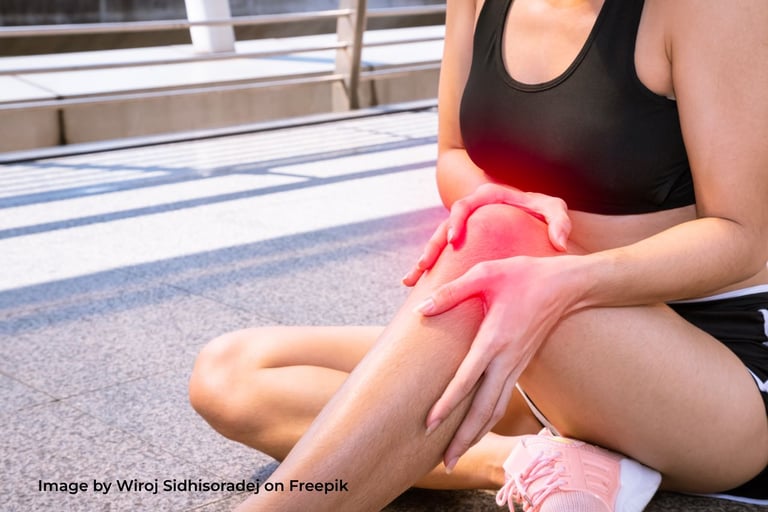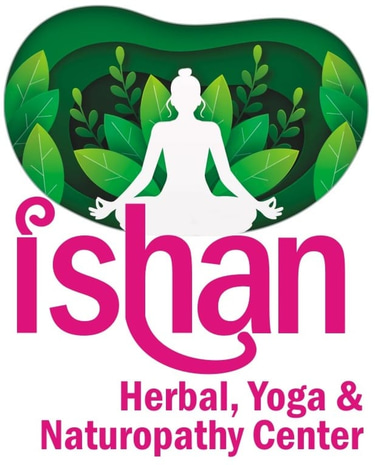Understanding Arthritis and Natural Therapies
The human body has various ways to eliminate waste and toxins, with the mouth serving as the entry point for nutrition. After the body utilizes the nutrients, waste and toxins are expelled through the anus, urine, skin, and nasika (nose). However, when these routes are unable to cleanse the body effectively, the remaining dirt accumulates in the blood, leading to the development of new diseases like colds, diarrhea, and fever. Unfortunately, without understanding this process, we often suppress these acute diseases with medication, which can result in chronic conditions. Arthritis is one such chronic disease caused by the accumulation of toxins within the body
Dr. Bhaskar Gawande
6/18/20233 min read


Different Types of Arthritis:
Arthritis manifests in various categories, each with its own characteristics and effects:
Acute Rheumatism: This type of arthritis occurs when toxins spread throughout the body, resulting in the generation of fever.
Muscular Rheumatism: When the muscles are attacked by toxins, muscular rheumatism occurs.
Osteoarthritis: Osteoarthritis involves the gradual degeneration of one or more joints in the body.
Osteoarthritis and Knee Pain:
Knee pain is a common issue in today's fast-paced modern life. Many individuals resort to harmful medications such as painkillers and steroids or undergo knee replacement surgery, which can be costly. Knee pain is often caused by an increase in toxins within the body. Additionally, factors such as prolonged standing and working, lack of sitting on the ground, and the use of commodes contribute to knee pain.
The Importance of Cartilage and Synovial Fluid:
Healthy knees contain cartilage, which acts as a cushion for the knee joints, supporting their proper functioning. Synovial fluid, secreted by synovial cells within a healthy joint, aids in maintaining flexibility and protecting against pain or stiffness around the knee.
Symptoms and Progression of Osteoarthritis:
Osteoarthritis typically begins with a prolonged widespread fever accompanied by pain and swelling in one or more joints. Over time, the affected limb becomes stiff, and the fibers surrounding the joint contract, eventually making movement impossible. In the case of osteoarthritis, there is stiffness, swelling, and pain in the knees, along with the deterioration of cells responsible for producing synovial fluid.
Natural Therapies for Arthritis:
Taking medication alone may not provide significant relief as long as the underlying toxins remain in the body. Instead, natural therapies can be beneficial. Here are some suggestions:
Skincare: Before bathing, gently rub the skin with the palm or a towel to keep the follicles open and promote proper skin function.
Sunbathing: Spend 15 to 20 minutes in the sun to induce sweating and facilitate detoxification.
Fasting and diet: Practice fasting or opt for a juice or fruit diet to cleanse the body.
Hot and cold therapy: Apply a hot water compress to the affected joints, followed by rinsing with cold water.
Stomach cleansing: Use an enema to clean the stomach and aid in toxin elimination.
Hot therapy: Engage in activities such as steam baths and hot foot baths to provide relief in arthritis-related conditions.
Gentle massage: Massage the area around the knees with warm sesame oil to alleviate discomfort.
Understanding that arthritis is not solely a joint-related issue but rather a whole-body disease caused by toxins allows us to explore natural therapies for effective relief. By adopting a holistic approach that focuses on detoxification and natural remedies, individuals with arthritis can improve their quality of life and manage their symptoms more effectively.
Arthritis is a condition characterized by inflammation and tenderness in one or more joints, often accompanied by joint pain and stiffness. These symptoms typically exacerbate as individuals age. The most prevalent forms of arthritis include osteoarthritis and rheumatoid arthritis.
Osteoarthritis develops when the protective cartilage, which cushions the ends of bones where they form joints, deteriorates over time. On the other hand, rheumatoid arthritis is an autoimmune disorder where the body's immune system mistakenly attacks the joints, initially targeting their linings.
Gout, another common type of arthritis, arises from the formation of uric acid crystals due to elevated levels of uric acid in the bloodstream. Additionally, infections or underlying conditions such as psoriasis or lupus can trigger various other forms of arthritis.
Treatment approaches vary depending on the specific type of arthritis diagnosed. The primary objectives of arthritis treatments are to alleviate symptoms and enhance the overall quality of life for affected individuals.


Frequently asked questions
What is arthritis?
Arthritis is a condition characterized by inflammation and tenderness in one or more joints, often accompanied by joint pain and stiffness. It encompasses various types, including osteoarthritis, rheumatoid arthritis, gout, and others.
What causes arthritis?
The causes of arthritis vary depending on the type. Osteoarthritis typically results from the natural wear and tear of joints over time, while rheumatoid arthritis is an autoimmune disorder. Gout is caused by the accumulation of uric acid crystals in the joints, and other types may stem from infections or underlying diseases.
Are there specific dietary recommendations for arthritis?
Certain foods and dietary patterns may help reduce arthritis symptoms and inflammation. Incorporating anti-inflammatory foods such as fruits, vegetables, fatty fish, nuts, and seeds into your diet while limiting processed foods, refined sugars, and saturated fats can be beneficial.
How can natural therapy help with arthritis?
Natural therapies such as dietary changes, herbal supplements, acupuncture, and physical therapy can help alleviate arthritis symptoms and improve joint function. These approaches often focus on reducing inflammation, managing pain, and supporting overall joint health.
Can supplements or herbal remedies relieve arthritis symptoms?
Some supplements and herbal remedies, such as turmeric, ginger, omega-3 fatty acids, and glucosamine/chondroitin, have shown promise in reducing inflammation and easing joint pain in arthritis patients. However, it's essential to consult with a healthcare professional before starting any new supplement regimen.
